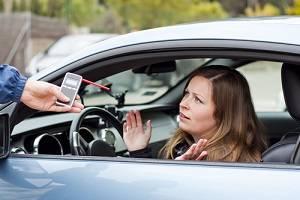Recent Blog Posts
Connecticut Sex Offender Registry Requirements
 When an individual finds themselves convicted of a serious crime, they rightfully expect that their future will change. However, upon conviction of a sexual crime, the difficulty of the uncertainty of their future and any behavior expectations may become overwhelming. One dilemma revolves around sex offender registration. What does this mean for everyday life and how will it impact the future? Sex offender registrants must meet certain requirements to abide by Connecticut laws.
When an individual finds themselves convicted of a serious crime, they rightfully expect that their future will change. However, upon conviction of a sexual crime, the difficulty of the uncertainty of their future and any behavior expectations may become overwhelming. One dilemma revolves around sex offender registration. What does this mean for everyday life and how will it impact the future? Sex offender registrants must meet certain requirements to abide by Connecticut laws.
Types of Sex Crimes
Nearly every conviction for any sex crime in Connecticut requires that the offender register on the National Sex Offender Registry. A few of the crimes that are under these regulations are:
- Sexual assault,
- Molestation of a child,
- Online solicitation of a minor,
Refusing a Breathalyzer in Connecticut
 A social drink with friends or family can become a legal headache when the police are involved. Once the lights start flashing in your rearview mirror, that buzz may dissipate, but the alcohol remains in the system. Throughout the United States, you are innocent until proven guilty. Therefore, no matter how erratic you were driving, as the officer approaches the vehicle, substantial evidence of DUI is unavailable. However, if there is reasonable belief of driving while intoxicated, a breathalyzer is requested. You do have the right to refuse. However, refusal does come at a price.
A social drink with friends or family can become a legal headache when the police are involved. Once the lights start flashing in your rearview mirror, that buzz may dissipate, but the alcohol remains in the system. Throughout the United States, you are innocent until proven guilty. Therefore, no matter how erratic you were driving, as the officer approaches the vehicle, substantial evidence of DUI is unavailable. However, if there is reasonable belief of driving while intoxicated, a breathalyzer is requested. You do have the right to refuse. However, refusal does come at a price.
Implied Consent Law
It is true that you are innocent until proven guilty of any crime, yet you must also watch out that you are not breaking a different law in the process of maintaining your innocence. While refusal of a breathalyzer or other chemical test may prevent the procurement of quantifiable evidence, the refusal may be construed as proof of knowledge of breaking the law. In the state of Connecticut, as well as many other states, drivers accept their driving privileges with the understanding of implied consent. The implied consent law says that after an arrest under probable cause of DUI, as a part of your driving privileges, you agree to blood, breath, or urine testing.
Shoplifting Can Steal Your Future
 With an increasing amount of pressure on our teens, we see a rise in unusual behavior. Our children face uncertainty upon leaving high school, partly due to fluctuation in job markets as well as climbing education costs. The need for perfection in school and extracurriculars is high to obtain scholarships to pay for education. Not to mention the additional stress for social status and every mistake spread wildly across social media outlets. Many of these stressors may lead to a cry for help or an error to fit in, potentially resulting in criminal accusations, such as theft or other property crimes.
With an increasing amount of pressure on our teens, we see a rise in unusual behavior. Our children face uncertainty upon leaving high school, partly due to fluctuation in job markets as well as climbing education costs. The need for perfection in school and extracurriculars is high to obtain scholarships to pay for education. Not to mention the additional stress for social status and every mistake spread wildly across social media outlets. Many of these stressors may lead to a cry for help or an error to fit in, potentially resulting in criminal accusations, such as theft or other property crimes.
A Learning Curve
A juvenile is an individual under the legal adult age of 18. In Connecticut, anyone under the age of 18 has a proclivity to make mistakes, and many deserve punishment, although not as severe as the adult counterpart. Many consequences for those in this age bracket are designed to teach a lesson rather than remove rights. This theory applies to a certain extent encompassing mostly theft related crimes because in many other situations adult punishments are the only option.
A DUI Can Jeopardize Your CDL
 Being convicted of driving while under the influence of alcohol is life-altering under any circumstances. The offense can have a substantial impact on your driving privileges and can also negatively affect sentencing for future non-related crimes. As if these penalties were not prerogative enough to dispute any allegation of DUI, if you are a CDL license holder, your career may be put jeopardy.
Being convicted of driving while under the influence of alcohol is life-altering under any circumstances. The offense can have a substantial impact on your driving privileges and can also negatively affect sentencing for future non-related crimes. As if these penalties were not prerogative enough to dispute any allegation of DUI, if you are a CDL license holder, your career may be put jeopardy.
Different Laws to Follow
The career of a commercial driver license (CDL) holder revolves around the ability to safely operate a vehicle. In most situations, the trucks they are responsible for maneuvering are many times larger than the average car on the road. If they were to collide, significant, potentially catastrophic injuries and even death are possible. For these reasons, the standards set for CDL drivers to uphold are higher. Regulations pertaining to operating a commercial vehicle are as follows:
Parental Liability in Juvenile Cases
 As parents, we go out of our way to protect our children. If someone bullies them, we do what we can to help them heal, learn to defend themselves, and punish those at fault. When our child is the one who misbehaved, protection takes a different form. They need punishments for learning experiences, as long as they are within reason. However, when the other parent comes knocking at your door, be careful what you say. Words you say to defend your child may be used against you in a parental liability suit.
As parents, we go out of our way to protect our children. If someone bullies them, we do what we can to help them heal, learn to defend themselves, and punish those at fault. When our child is the one who misbehaved, protection takes a different form. They need punishments for learning experiences, as long as they are within reason. However, when the other parent comes knocking at your door, be careful what you say. Words you say to defend your child may be used against you in a parental liability suit.
Parental Liability
You are likely aware that being a parent comes with a significant amount of responsibility. Not only does your child need to be fed and sheltered, but also needs to obtain an education, maintain health, and attend regular dental visits. What you may not be immediately aware of is that your child also cannot become a disruptive member of society. Anything that your child does can have a direct impact on you and you may be held responsible. Children are not accountable for the same standards that adults are. However, they do have a level of behavior to which they still must adhere. If they are under 16 years of age, an unwritten standard of conduct exists for the rational behavior of those of similar age, experience, and intelligence. This reasonable expectation is how their behavior is judged.
Damaging Property While Driving under the Influence
 Accidents do not always have to involve other vehicles. An accident can happen with an entirely stationary object, such as a street sign, mailbox or even a tree. Property damage happens for a variety of reasons. Most of the time, the property needs to be replaced or repaired by the person at fault, and any additional consequences are minimal. However, if the incident happened because the driver of the vehicle was driving under the influence of alcohol or drugs, the repercussions are more severe.
Accidents do not always have to involve other vehicles. An accident can happen with an entirely stationary object, such as a street sign, mailbox or even a tree. Property damage happens for a variety of reasons. Most of the time, the property needs to be replaced or repaired by the person at fault, and any additional consequences are minimal. However, if the incident happened because the driver of the vehicle was driving under the influence of alcohol or drugs, the repercussions are more severe.
When Cause Matters
DUI consequences are harsh, carrying a life-long impact. However, with the inclusion of property damages or personal injuries the penalties can double in severity. Additionally, the cause of the property damage carries variable outcomes. If the incident was avoidable if behavior had been different, the penalty is higher. Let us explore the variances of property damage.
Crime or Hate Crime?
 The term “hate crime” seems to be rearing itself more often in news stories today. From social media to mainstream television stories, this term is being thrown about, often with disregard to the full legal definition. Although there are individuals who appear to reject the idea, the United States as a whole is embracing the idea of diversity. After all, the country is a “melting pot” of the world, where people from all walks of life are invited to join our great nation. However, with such a wide variation, it is becoming increasingly difficult to determine whether a crime is a crime of convenience or a hate crime.
The term “hate crime” seems to be rearing itself more often in news stories today. From social media to mainstream television stories, this term is being thrown about, often with disregard to the full legal definition. Although there are individuals who appear to reject the idea, the United States as a whole is embracing the idea of diversity. After all, the country is a “melting pot” of the world, where people from all walks of life are invited to join our great nation. However, with such a wide variation, it is becoming increasingly difficult to determine whether a crime is a crime of convenience or a hate crime.
Constitution of a Hate Crime
If proof beyond a reasonable doubt exists that a violent act or other criminal activity occurred due to the violence or bigotry of an individual, a lesser crime may escalate to a higher charge. Stronger punishments await those charged for violent discrimination against any person for any protected characteristics, including:
Bullying Accusations
 “They were mean to me!” Most parents have heard this or a similar complaint from their child. In previous generations, children were often left to learn from the experience by handling it themselves. If the methodology chosen was incorrect, our parents were sure to let us know about it as soon as we got home. In the present day, there is a national outcry for the school system to step in and protect children. Although school should have some responsibility to ensure the safety of the child, there is a point where the bully becomes a victim.
“They were mean to me!” Most parents have heard this or a similar complaint from their child. In previous generations, children were often left to learn from the experience by handling it themselves. If the methodology chosen was incorrect, our parents were sure to let us know about it as soon as we got home. In the present day, there is a national outcry for the school system to step in and protect children. Although school should have some responsibility to ensure the safety of the child, there is a point where the bully becomes a victim.
What Constitutes Bullying?
Stereotypically, the bully is the child that dominates their classmates, taking their lunch money and locking them in lockers. Bullying comes in all forms, including verbal, emotional and physical. The term has expanded to encompass a broad range of behaviors, which, by law, each school district is to define independently. However, legislation exists at the state and federal level to combat violence and harassment in the education system. The law dictates that bullying is:
DUI With a Child Present
 Many children are similar to sponges in that they absorb everything around them. Have you noticed that your child repeats your language or behavior? This repetition is thought to be practicing behavior for children. They practice forming sentences or saying new words by verbally repeating your words. In the same way, they repeat behavior they see, such as exercising or spending time on electronics. Due to this and because children do not have a significant amount of leverage with the behavior of their parents, crimes such as DUI/OUI when children are present are punished more severely.
Many children are similar to sponges in that they absorb everything around them. Have you noticed that your child repeats your language or behavior? This repetition is thought to be practicing behavior for children. They practice forming sentences or saying new words by verbally repeating your words. In the same way, they repeat behavior they see, such as exercising or spending time on electronics. Due to this and because children do not have a significant amount of leverage with the behavior of their parents, crimes such as DUI/OUI when children are present are punished more severely.
Risk of Injuries
When a child is under the age of 18, they are in the direct care of a parent or other guardian. It is the responsibility of that adult to ensure the safety of the child in question. The law specifically requires children under the age of 16 to be guarded safely, and anyone who violates this statute is subject to legal repercussions. Among other situations, the law explicitly states that it is illegal to:
The Criminalization of Self Defense
 As children, many of us were taught not to hit others, but if they hit us first, it was okay to defend yourself. Although that method works for small children, once they reach the pre-teen years, perhaps we should be a bit more elaborate. After all, the law states that only under certain, pre-defined circumstances is it okay for you to use violence as a form of defense. In many violent crime situations, it is entirely possible that the scenario can reverse in court, and the victim can quickly become the aggressor.
As children, many of us were taught not to hit others, but if they hit us first, it was okay to defend yourself. Although that method works for small children, once they reach the pre-teen years, perhaps we should be a bit more elaborate. After all, the law states that only under certain, pre-defined circumstances is it okay for you to use violence as a form of defense. In many violent crime situations, it is entirely possible that the scenario can reverse in court, and the victim can quickly become the aggressor.
The Scenario
Although the potential to be criminalized for defensive action can occur with almost any circumstance, for the brevity of this post, only one situation will be discussed. What if someone is breaking into your home through the window to your child’s room and protecting your kids asleep in bed, you shoot the intruder as they are crossing the threshold of the windowsill? What if the criminal dies as a direct consequence of their injuries sustained? If their family is distraught over their lost family member, they may obtain legal counsel and bring forth charges against you as the homeowner for murdering this person. You did not seek out to break any laws; you just were defending your family.







